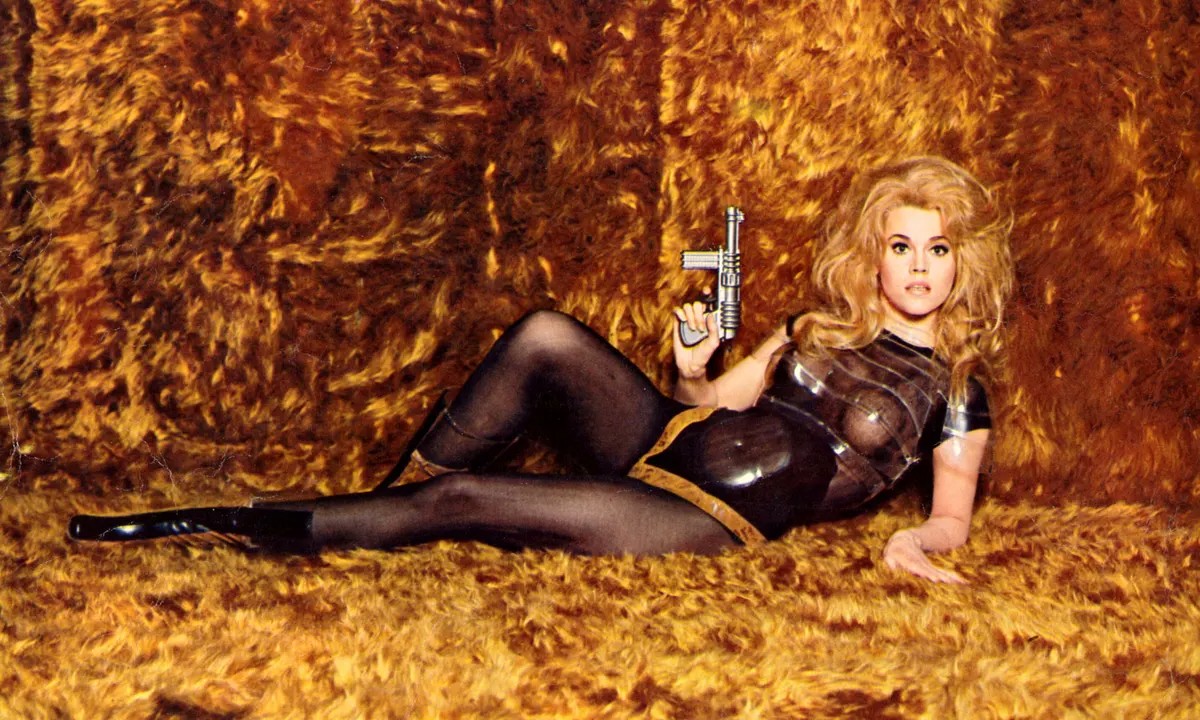In Jean-Claude Forest’s Barbarella, the title character is a young Earth woman adventuring her way through the universe, encountering various problems and new sexual partners along the way. It’s deeply weird and more fun than I expected.
Reading the recent translation that was adapted by Kelly Sue DeCnnick, I was struck at how much it felt like Forest was just making things up as he went along and mostly just drawing things because he thought it was cool.

There is something of a plot, but it mostly involves reasons to get Barbarella in various states of undress and have her get in bed with various characters. It’s adult, but in that ’60s French way. Barbarella isn’t judged or shamed for her sexuality (at least in DeConnick’s interpretation — I have not read earlier ones). Forest’s art has a playful quality to it and he does a great job of creating odd science fiction worlds that have their own rules and logic.
Is Barbarella a great comic? It depends on your tastes, I suppose. I had fun reading it and I’m glad I finally did so. However, as much as it was a good experience, I don’t really see myself reading it again.
I actually feel much the same way about 1968’s Barbarella movie, directed by Roger Vadim.
I actually think Jane Fonda (who was Vadim’s wife at the time) makes a great Barbarella and I think this movie succeeds because she’s the lead. Yes, this is a movie where our lead character strips naked before the opening credits even finish, but Fonda projects such a vibrant intelligence here that she keeps Barbarella from being just vapid and sex-crazed (the movie, for a variety of reasons, does tone down Barbarella’s sexuality).
The movie vaguely follows the first Barbarella storyline, although with some additions and changes. Barbarella is tasked with finding fellow Earthling Durand Durand (Milo O’Shea) and her mission takes her to Sogo, a city surrounded by a labyrinth. There’s Pygar (John Phillip Law), a winged “angel” and the evil queen played by Anita Pallenberg (voiced by Joan Greenwood).
But much like the comic, the plot barely matters. It’s just a lot of connection between set pieces and finding excuses for Barbarella to change outfits (the costume design, by Jacques Fonteray and Paco Rabane, is incredible).
The movie does seem to lose focus the longer it goes on (and it’s not a particularly long movie), as everyone used up the best ideas early on. Some of the humor, especially the scenes with Dildano (David Hemmings), falls flatly and feels like it belongs in another movie.
Still, while the movie does acknowledge there are some darker things happening, everyone here seems to understand Barbarella is mostly just fun and sexy and it sells those aspects well. While it’s not completely faithful to the source material, it captures the comic’s spirit well and honestly, I don’t know if you could really make a better adaptation now.
There have been some attempts — new adaptations have been discussed for a while, with various actresses being considered for the role. Writers Neal Purvis and Robert Wade and director Nicolas Winding Refn were attempting to make a TV series as recently as 2013 but nothing ever came of that.
And really, Barbarella — both the comic and the movie — feel like such a product of its time that I can’t really see any modern adaptations working too well. Once the necessary updates are made, it would no longer feel like Barbarella.
Still, the movie’s cultural impact is still being felt and that’s pretty great for a movie from more than 50 years ago based on a weird French comic. I think we can just enjoy it for what it is.

